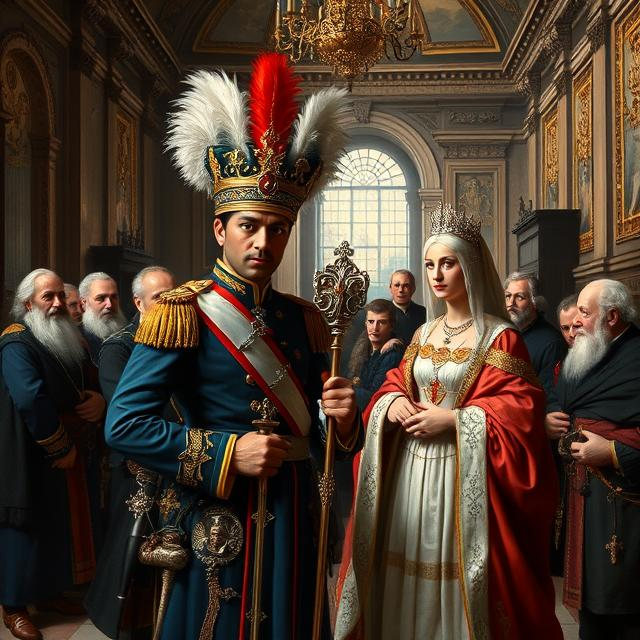HEROES OF COSMOPOLITANISM: BETTER CALL PAUL
- Andreus Et Bonumagra

- Apr 10, 2025
- 4 min read
Paul: A Hero of Cosmopolitanism
Saul was a son of Jewish society, raised with privilege and promise. He studied under the legendary Gamaliel, a teacher so revered that, upon his death, some mourned that “the purity of the Law died with him.” [Mishnah Sotah 9:15] From such a man, Saul absorbed not only the Law but also the spirit of rigorous thought. He was a man of letters—versed in poetry, philosophy, scripture, and civil law. And more than that, he was a Roman citizen, a rare and coveted status that granted him legal protections and social advantages in the imperial world.
By every worldly measure, Saul was doing well for himself in the 1st century. But for all this brilliance, there was imbalance. His zeal outpaced his wisdom. Convinced he was defending truth, Saul became a fierce persecutor of a small but growing sect—followers of an executed teacher named Jesus. He hunted them, imprisoned them, and approved of their deaths. Until, one day, on the road to Damascus, truth struck him blind.
It was a poetic affliction. Christ had only revealed externally what was already true inwardly: Saul was blind to the light. And yet, once in Damascus, his eyes were healed—both literally and spiritually. The man who emerged from that moment was not Saul, but Paul.
The Mission
Paul’s mission was unlike anything the ancient world had seen. He was to spread the news of salvation to all nations—a divine ambassador of a heavenly government. His aim was not to conquer, nor to entice with promises of wealth or land, but to persuade hearts and minds to voluntarily align themselves with the Kingdom of God. This Kingdom, though invisible, had all the marks of legitimacy: a head of state, a constitution, a military (spiritual in nature), an education system, campaign promises, and borders drawn not in soil, but in spirit.
This, then, was the mission: to create a global commonwealth—not bound by race, language, or empire—but by faith, love, and shared service to a divine King and his God Jehovah.
The Work
Paul carried this vision through three major missionary journeys across the Mediterranean world—through Judea, Syria, Asia Minor, Macedonia, Greece, and beyond. In doing so, he helped transform Christianity from a local Jewish sect into a global faith. Through his letters—now forming a major portion of the New Testament—he instructed, rebuked, comforted, and united a diverse array of people. These were not just theological treatises; they were blueprints for cross-cultural community, practical guides to spiritual egalitarianism.
In Paul’s vision, Jew and Greek, male and female, slave and free could worship side by side. No ethnic hierarchy. No national privilege. Only the grace of God, extended equally.
He even stood before Caesar’s court, bringing the testimony of this heavenly kingdom to the heart of imperial Rome. Though tradition holds that he lost his life in that city, it is clear: Paul lived and died as a servant—not only of Christ, but of the people of the world. He was no tourist with selfies on instagram. He was no ivory-tower thinker. He was a true adventurer—wading through riots, storms, prisons, and hardship for the sake of others.

A Model for Us
In an age of global disconnection and curated “cosmopolitanism,” Paul offers us a deeper model—one rooted not in luxury or status, but in mission, service, and spiritual courage.
To follow Paul, we might:
Find a mission that places us in the service of others—something bigger than the self.
Delight in the difficult—learning to see challenge as an opportunity to grow, rather than retreat.
Become all things to all people—not by abandoning our identity, but by immersing ourselves in the experience of others, so that we might love more deeply and serve more effectively.
Conclusion: The Pilgrim’s Legacy
Paul walked dusty roads not merely to build congregations, but to build bridges—between heaven and earth, between peoples divided by history and pride. His life teaches us that the truest cosmopolitanism is not the erasure of difference, but the sanctification of it. It is not a global uniformity, but a global unity—where every culture finds its noblest voice in harmony with God’s kingdom.
He was not perfect. He wrestled with weakness, sorrow, and misunderstanding. But he pressed on. Not to claim a city, but a crown—not to create followers of himself, but disciples of Christ. He lived as a Roman, reasoned like a Greek, sang like a Jew, and loved like a servant of all.
If we are to be citizens of the world—let it be in this way.
Some Words From Paul Himself:
“There is neither Jew nor Greek, slave nor free, male nor female, for you are all one in Christ Jesus.” — Galatians 3:28
“To the Jews I became like a Jew, to win the Jews... I have become all things to all people so that by all possible means I might save some.” — 1 Corinthians 9:20, 22
“Our citizenship is in heaven.” — Philippians 3:20



Comments